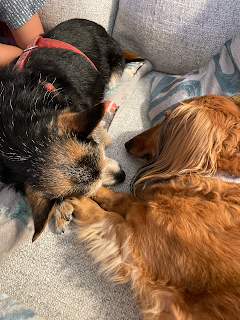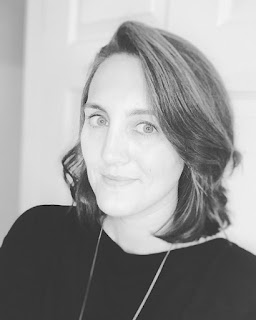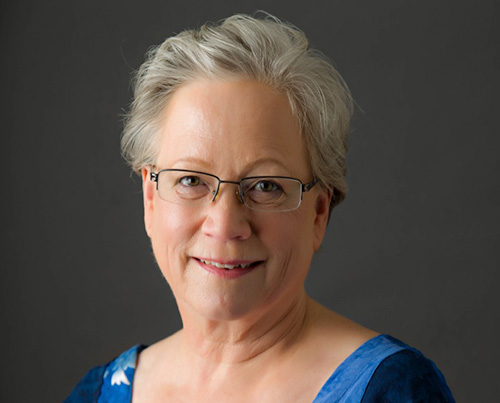Ask the Book Doctor: About Capitals and Lowercase
Replenishing the Creative Well
 |
| The patio from our recent vacation hone in Texas. |
 |
| From left, Sonic, who left us last week, and right, Ruby the dachshund. |
Nothing Like a Good Bandwagon
Interview with Lynn Aprill, Runner Up in the WOW! Winter 2023 Flash Fiction Contest
The Women’s World Cup is on in Australia, so I wanted to talk about: How Writing Is Like An Elite Sport
I grew up watching my uncle and brothers play soccer, and I even played some soccer myself. I married a man who played soccer and now I have two kids who play - you guessed it - soccer. But it wasn’t until my kids got serious about soccer that I realised my writing rejections were teaching me some important lessons.
No Time For Twitter
For those of you just joining the Twitter saga, a quick recap:
Starting a Substacks Newsletter
 |
| Are you ready to step off the cliff and start a newsletter? |
Well, I’ve done it. After Cathy extolled the virtues of Substack, I started seeing it mentioned here and there. Some of the newsletters I've been reading for years had even migrated, unbeknown to me, to Substack.
This week I decided to step off the cliff. I know that sounds impetuous, but I’d been noodling this over since I saw Cathy's May post. If I was going to do a newsletter, what would I do? What do I know enough about to compile a monthly or bi-weekly newsletter? Writing. Books. And creativity.
- Sarai Mitnick’s Making Time. Her newsletter is about creativity but she approaches it from the perspective of making time to make what you want. She sews but she also cooks and obviously, because she has a newsletter, writes. I always take something valuable away from this newsletter.
- The Practicing Writer by Erika Dreifus. I’ve been reading this one since long before it migrated to Substack. She shares a lot of writing and publishing news as well as markets.
- Never Not Nervous by Brooke Barker In this newsletter Brooke shares her comics and her thoughts. I absolutely love her comics.
Interview with Laura Girardeau : Winter 2023 Flash Fiction Contest Runner Up
interview by Marcia Peterson
WOW: Congratulations on your top ten win in our Winter 2023 Flash Fiction competition! Can you tell us what encouraged the idea behind your story, “Sixteen?”
Laura: First, thanks to the editors and staff of WOW for inspiring a supportive community of women writers! I stumbled upon the WOW site and got hooked. I love reading winning pieces, bios, interviews, and articles to learn from others. WOW makes sharing writing fun and connecting rather than intimidating.
“Sixteen” was inspired by loss. Growing up, I kept diaries like many girls, and planned to use them for memoirs when I grew up. But I lost the diaries in a cross-country move. So I started writing stories to capture memories I might otherwise forget. When recall was hazy, I started with one sense memory (sight, sound, scent, etc.) and found that each was hooked to another, filling in the picture.
“Sixteen” was my way of capturing first love and the trials of high school. I wrote in the girl’s voice so it feels more like a diary. What did it feel like to be that age? How was it heaven, and how was it hell? What’s specific to my experience and what may be universal? What do we still search for? And how can I honor those I’ve loved? By writing a story, of course!
WOW: Why do you write flash? What makes it different for you?
Laura: Flash is a challenge that can make us better writers. When I first tried cutting a short story to flash length for a contest, I hated the process. Then I saw how weeding down to key details makes writing come alive, like saturating photos. Flash helps me reduce purple prose, a weakness of mine. It helps me show and not tell, evoking emotion and empathy in new ways. Flash is also great in an online format. It’s quicker to read and write for busy people. With shorter pieces being shared online, more writers can share their work, and more readers can access it to experience multiple worldviews “in a flash.”
WOW: What advice would you give to someone wanting to try writing flash fiction for the first time?
Or practice “weeding” a longer story. Make a copy and cut 100 words, then 200. Later, get it below 1,000 words, then 500. What suffers and what shines? Compare versions with a friend. You may be surprised that they like the short form more. Only you were attached to your “darlings” (favorite phrases that only mean something to you). If you need community, check out teacher bios and choose an online workshop.
See contests as inspiration rather than competition. Sometimes we need a deadline or prompt as a kick in the pants, and a small fee or due date is worth it to get writing. Sit back and enjoy watching the game, no attachment to the outcome. Whether or not we win, we can be touched by stories and celebrate each other.
WOW: Great tips! Can you tell us what projects are you currently working on? What can we plan on seeing from you in the future?
Laura: I have several stories I wrote years ago to capture the lost diaries, one for each year I could remember. “Sixteen” was one. I may “mine” the others for gems, weed them down to flash, and submit. A book of connected stories is possible, but I also enjoy submitting single pieces since it exposes me to many journals and writing communities. I like to learn from other writers. I’m dabbling with new topics, characters and creative non-fiction to get out of my head. I also like poetry as a gratitude practice.
I’m relatively new to submitting. I’ve always written for myself and been shy about sharing. But sites like WOW showed me that when women share stories, it’s a gift. If we can experience a moment of beauty, understanding, shared humanity, or healing through writing or reading, we all win. That’s the real prize.
WOW: Thanks so much for chatting with us today, Laura. Before you go, do you have a favorite writing tip or piece of advice you can share?
I like to write first thing in the morning before my daughter wakes up, with coffee and a notebook at the window. That half-dream state can make our writing wild and honest, especially if we scribble in longhand. Computers can be used later for editing, but writing first drafts in longhand uses a more creative part of the brain. If you get a few snippets or gems to use later amidst the junk, you succeeded.
Write as if no one’s reading (since they aren’t)! Even if you’re not a morning person, you can still tap your own power rather than the barrage of stuff society throws at us on the news, phones, internet, etc. Just keep it all unplugged for the first 30 minutes and grab that golden time when your thoughts are yours, when dreams and memories swirl in wild ways, and see what happens!
For more information about our quarterly Flash Fiction and Creative Nonfiction Essay contests, visit our contest page here.
Tips on Writing Dialogue
Turn Your Passion into a Podcast
When I first started my podcast, I did not anticipate the ways in which it would evolve, but I’ve been pleasantly surprised with the content I’ve been able to create and tie back into "Missing in the Carolinas." While at first I focused solely on missing persons cases, I realized I could use other true crime topics I’m passionate about to create new episodes.
Keep Trying, Don't Give Up
Recently, I had that experience.
Prior to this acceptance, I had taken my short story through another round of revisions, hoping it would lead to an acceptance. I had to muster up all my energy to do this, and not lose sight of my goal: publication.
Even when I'm finished with a story, I'm never really done. After a certain number of revisions, I go back, tweak a bit, and send it out fresh. Sometimes it's more than tweaking though. Sometimes I realize a story needs a major overhaul.
With my short story, "You Spelled Carrot Wrong," last year, I realized it needed an overhaul. My character wasn't strong enough, and she didn't have clear motivations. So, I reworked it and sent it out into the world again.
Then, feeling a tad defeated, I got some fresh feedback, applied it as best I could, and sent it out again.
Finally, last week, I got an acceptance. This story had received 51 rejections, and finally, its 52nd was an acceptance.
I never would have thought this story would have been accepted. After a while, I begin to wonder if a story ever would, especially since it has been submitted for a few years now.
However, it's a reminder to me, and I hope to you as well, to not give up. Even if the journey feels tiring, keep trying. Keep striving. You just never know.
Nicole Pyles is a writer living in Portland, Oregon. Her writing has appeared in Sky Island Journal, Arlington Literary Journal, The Voices Project, and eventually, The Ocotillo Review. A poem of hers was also featured in the anthology DEAR LEADERS TALES. Say hi to her on Twitter or Threads under @BeingTheWriter.
Interview With M.T. Solomon, Runner Up in the Winter WOW! Winter Flash Fiction Contest
Interview with Barbara Morrison Runner Up in the WOW! Quarter 2 2023 Creative Nonfiction Contest with "Silver"
5 Ways Short Story Writing Has Boosted My Productivity
1. Building a consistent writing habit
2. Exploring your creativity and experimenting
3. Completing arcs and finishing projects
4. Honing your writing skills
5. Overcoming perfectionism and fear of rejection
Linnea Gradin is a writer for Reedsy — a digital marketplace connecting authors with the industry’s best publishing professionals and providing answers and information on all things writing and publishing related, from how to find a ghostwriter to how to make an audiobook.
Dare to Take a Chance
Interview with Kathryn Boyd, Runner Up in the WOW! Winter 2023 Flash Fiction Contest
Kathryn’s Bio:
Radio station continuity director. Advertising agency copywriter. Freelance copywriter. Kathryn’s career had its ups and downs but was never boring. And all the while she studied the art of writing fiction until bold enough to make it her life’s work.
As of now, she is in the final stages of rewrite for an upper YA near future eco-fiction novel. The working title is Great Plains Desert. The Darling Axe served as Developmental editor.
Kathryn’s husband, Mike, is also an avid writer. They live near grown daughter Molly, who astounds them as she continually challenges herself to excel in every facet of her life.
Home is Olathe, Kansas. This is where the North American Eastern deciduous forest transcends into the Western tallgrass prairie and its rich source of stories waiting to be told.
*****interview by Sue Bradford Edwards*****
WOW: First of all, I hope that anyone who hasn't read your story, "Too Many Kids," will take the time to do so. In the meantime, what was the inspiration for this story?
Kathy: The actual problem/solution conversation happened between a mom of seven kids and her oldest daughter. I decided it would make a good story if a kid actually accepted the challenge -- Which one should we give away?
WOW: That's a doozy! It is vital to pick the right POV character in a story. With so many characters, how did you know “Too Many Kids” was Jeremy’s story to tell?
Kathy: With the combined families, life had changed dramatically for every member of the family. Yet I felt adapting to an expanded family was hardest for Jeremy. He’d been displaced as the oldest boy in the family. He had to share a room with his little brother and a teenager.
Jeremy’s complaint of ‘too many kids’ implied ’not enough Mom’. He worried about being left out now that additional kids and a new baby clamored for attention.
WOW: I think we've all felt displaced at some time so that's something that clicks with readers. How did your story change during the revision process?
Kathy: I heightened Jeremy’s confusion and doubts about which kid the family could do without. In so doing, emphasis is added to Jeremy’s difficulty answering what he originally thought would be an easy question.
WOW: Your bio says that are also working on a YA novel. How does writing a novel inform your flash writing process?
Kathy: Love. Fear. Greed. These are the three emotions uppermost in my mind when crafting a story of any length for any market. Basic emotions motivate humans and make for great stories.
WOW: Now I'm going to look for those motivators in the book that I'm reading. What do you know now that you wish you had known when you started writing fiction?
Kathy: The value of a constant reminder to Show Don’t Tell by having it tattooed on the back of my left hand.
Interview with Amy Holan (aka Havi Zavi), Runner Up in the WOW! Q2 2023 Essay Contest





















